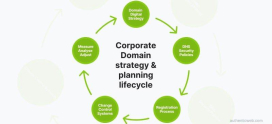
Why Cheap Web Hosting Doesn’t Mean Poor Quality
Web Hosting 101: What Newbies Need to Know
Ah, web hosting! It sounds like a techy term that can make anyone’s head spin, right? Trust me, I was once in your shoes, staring blankly at computer screens, trying to decipher what this “hosting” thing actually was. It’s almost like ordering a complex dish at a new restaurant, unsure if you’ll love the taste or get served a plate full of confusion. So, grab your virtual fork and let’s dig into the basics of web hosting; I promise it’s more appetizing than it sounds.
What is Web Hosting?
Think of web hosting as a digital real estate service. When you create a website, it requires a piece of land to reside on so that visitors can find it. This “land” is the server space provided by a hosting service. You can create a beautiful home (your website), but without a solid foundation (web hosting), it’ll be like a luxury mansion built on quicksand—pretty to look at, but ultimately useless.
Here’s a fun little anecdote: When I first launched my blog, I thought picking a flashy design was enough. I was so focused on aesthetics that I neglected to consider hosting. A few weeks in, my site crashed during a traffic spike—classic rookie mistake. If only I had invested a little time in understanding hosting! So, let’s make sure you don’t make the same errors.
Types of Web Hosting
Just as there are various forms of housing, there are several types of web hosting. Each option has its pros and cons, and the best choice depends on your specific needs. Consider these common types:
- Shared Hosting: This is like renting a room in a shared apartment. You’re living with others, leading to lower costs but also sharing resources. Great for personal blogs or small websites!
- VPS Hosting: Short for Virtual Private Server. Think of it as having your own condo, where you still share the building but have more control and resources. Recommended for small businesses that may grow faster than expected. Check out DarazHost’s VPS options.
- Dedicated Hosting: This is owning your entire house. It’s pricier but offers amazing performance, ideal for large enterprises or websites with high traffic.
- Cloud Hosting: A modern approach, where your site is hosted across multiple servers. So, if one server is overloaded or fails, another can pick up the slack. This is smart for those who need reliability and scalability.
- WordPress Hosting: Tailored specifically for WordPress users. It’s like living in a community built just for you, with features optimized for better performance. DarazHost offers some fantastic options here!
Choosing the Right Web Hosting Provider
Choosing a web host is like finding a trustworthy babysitter for your precious children (a.k.a. your website). You want someone reliable and responsible—after all, you don’t want your sitter throwing a wild party while you’re out, right? Here are a few tips to help you find a good hosting provider:
- Assess Your Needs: Do you expect a lot of traffic? Will you be running an e-commerce site? Different projects have different demands.
- Check Reviews: Before settling on a provider, look at user reviews and ratings. Find out how the company handles customer service—are they quick to respond? Are they friendly? You don’t want to be left without support in case something goes wrong.
- Evaluate Pricing: Sometimes the cheapest option can be a huge red flag. Look for value rather than just low prices. It’s worth it to invest a little extra for reliability!
- Features Matter: Make sure you’re getting essential features such as SSL certificates, backups, and site migrations included.
- Scalability: Check if it’s easy to upgrade your hosting plan as your website grows. You don’t want to move houses every year!
Understanding Technical Jargon
So, you’ve found a host! Great! But wait, what’s up with all those technical terms? Don’t worry; you don’t need a degree in computer science to understand hosting. Here’s a quick rundown:
- Bandwidth: Think of bandwidth as a highway. The more lanes you have, the more traffic your website can handle at once. If you’re expecting lots of visitors, aim for a host that offers more bandwidth.
- Uptime: This refers to how often your website is accessible. Reliable hosts offer an uptime of 99.9%. Anything less, and you might just be opening the door to lost visitors.
- Domain Name: This is the address people type into their browsers to access your website. Make sure it’s memorable and relevant!
Getting Started with Your New Host
Once you’ve made your choice, it’s time to get set up! Most hosting companies will guide you through the process, but here are a few essential steps you’d typically follow:
- Register Your Domain: You can do this through your web host or separately via a domain registrar.
- Choose a Hosting Plan: Select the plan that suits your needs and budget.
- Install Software: Many hosts offer one-click installations for CMS platforms like WordPress, making it super easy to get started.
- Design Your Website: Use a template or start from scratch—whatever floats your boat!
- Launch! It’s time to unveil your creation to the world. Don’t forget to share it with friends to gather feedback!
Final Thoughts
Jumping into the world of web hosting can feel daunting, but once you break it down, it’s really just about finding the right space for your digital dreams. Sure, there might be a few hiccups along the way (spoiler: there will be!), but that’s all part of the journey.
Don’t get lost in the technical jargon—focus on what you need for your website. Always remember, you’re building something that’s a reflection of your brand, so choose wisely and don’t skimp on quality.
FAQs
1. How much should I expect to spend on web hosting?
Prices can vary widely based on your choice of hosting type. Shared hosting can be as low as $3-10 per month, while dedicated servers can set you back $100 or more. Always evaluate what’s included in the price!
2. Can I switch hosting providers later?
Yes! While it’s an added step and may require some work, it’s definitely possible to migrate your website to a new host. Just make sure to back up everything first!
3. What if my website grows quickly?
Your hosting plan should allow for upgrades. Look for providers like DarazHost that make scaling easy.
4. Is technical support necessary?
Absolutely! Good customer support can save you late-night headaches. Make sure your chosen host offers reliable customer service.
Embarking on your web hosting journey doesn’t have to be a solitary experience. With the right knowledge and resources at your fingertips, you’ll be cruising along the digital highway in no time!









